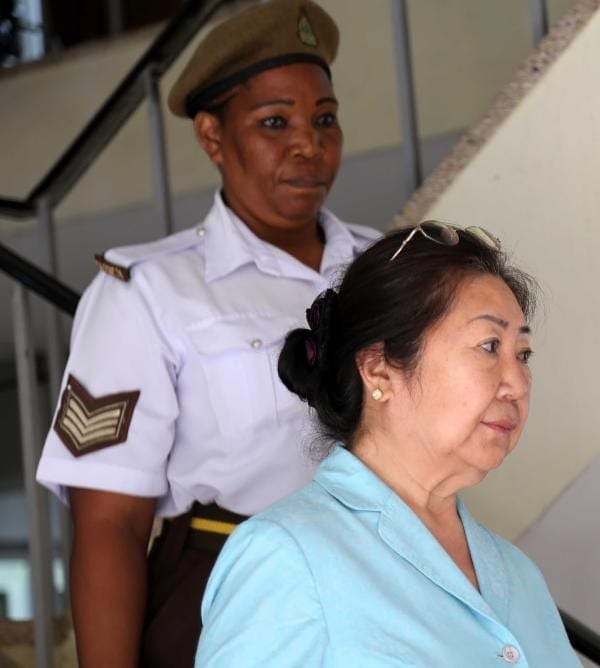Tanzanian Resident Magistrate sentenced a Chinese national to 15 years in prison today for trafficking of elephant tusks, which prosecutors claimed to have been chopped from about 400 African elephants.
The Kisutu Resident Magistrate in the commercial city of Dar es Salaam had sentenced the Chinese prominent businesswoman Yang Feng Glan in its ruling after the prosecutors told the court that the accused Chinese woman, also known as “Ivory Queen”, was charged in October 2015 and accused of smuggling about 860 pieces ($5.6 million worth) of ivory between 2000 and 2004.
The accused denied the charges.
Police said Yang, aged 69, had lived in Tanzania since the 1970s and was secretary general of the China-Africa Business Council of Tanzania. She also owns a popular Chinese restaurant in Dar es Salaam, the Tanzanian capital.
The Chinese woman and two Tanzanian men known as Salivius Matembo and Manase Philemon were convicted in the Dar es Salaam court of leading an organized criminal gang and crime against the wildlife.
The Kisutu Court magistrate issued the sentences of 15 years in prison to the trio. The magistrate also ordered the three to either pay twice the market value of the elephant tusks or face an additional two years in prison.
In court documents, prosecutors said Yang sought to “organize, manage and finance a criminal racket by collecting, transporting or exporting and selling government trophies” weighing just over two tons.
Demand for ivory from Asian countries such as China and Vietnam has led to a surge in poaching across Africa.
According to a 2015 census, Tanzania’s elephant population shrank to little more than 43,000 in 2014 from 110,000 in 2009. Conservation groups have blamed “industrial-scale” poaching.
Ms Yang is not the first Chinese person to be convicted of ivory smuggling in Tanzania in recent years. In March 2016, two Chinese men were sentenced to 35 years each in prison; in December 2015, another court sentenced four Chinese men to 20 years each for smuggling rhino horns.
Tanzania’s National and Transnational Serious Crimes Investigation Unit had tracked her for more than a year.
Tanzania remains the worst hit area by ivory poaching in Africa. The country is believed to have lost two thirds of its total elephant population in the past decade.
In recent years, Chinese authorities have made strong efforts to collaborate with the international community on the crackdown on ivory trading. In March, China banned imports of ivory and carved-ivory items acquired before July 1, 1975, when the Convention on International Trade in Endangered Species of Wild Fauna and Flora took effect.
WHAT TO TAKE AWAY FROM THIS ARTICLE:
- The Kisutu Resident Magistrate in the commercial city of Dar es Salaam had sentenced the Chinese prominent businesswoman Yang Feng Glan in its ruling after the prosecutors told the court that the accused Chinese woman, also known as “Ivory Queen”, was charged in October 2015 and accused of smuggling about 860 pieces ($5.
- The Chinese woman and two Tanzanian men known as Salivius Matembo and Manase Philemon were convicted in the Dar es Salaam court of leading an organized criminal gang and crime against the wildlife.
- The magistrate also ordered the three to either pay twice the market value of the elephant tusks or face an additional two years in prison.






















